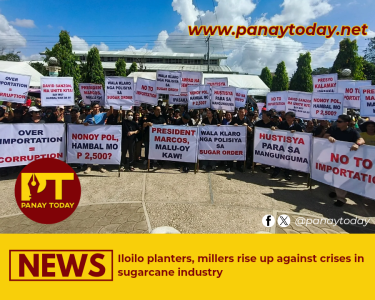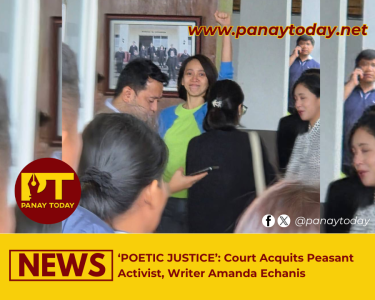“Existence of the risk of earthquakes, lack of procedural justification, and destruction of the environment makes the project unjustifiable. The tragic accident of the Laos dam should never happen again. The construction should be halted and reexamined.” – PSPD
SOUTH KOREA – On September 3, 2018, the National Irrigation Administration (NIA) of the Philippines and Daewoo Engineering & Construction Co. (Daewoo E&C) announced that they had signed the main contract for The Jalaur Multipurpose Project Phase 2 (JRMPII), and that the construction would start during the first week of October 2018.
However, they are enforcing the construction of the large dam regardless of the opposition and concerns of indigenous people and civil associations. The working expense of the JRMPII reaches a total of $193,000,000 and is the largest credit assistance in the history of the Economic Development and Cooperation Fund (EDCF) of Korea.
It is a loan contract between Daewoo E&C and the Philippine Government. The project is the first one to apply the ‘Safeguard’ of EDCF, which was established to prevent violations of indigenous people’s rights.
However, the feasibility study report and the environmental-social impact assessment report of the project is being withheld, and indigenous people are constantly raising safety issues.
We, the People’s Solidarity for Participatory Democracy (PSPD), denounce the Export-Import Bank of Korea for distressing the indigenous people with the taxpayer-generated Official Development Assistance (ODA), and demand an overall reexamination of this project as well as the discontinuation of further financial support.
The Jalaur Multipurpose Project Phase 2 (JRMPII) consists of constructing i) 3 dams in the city of Iloilo including a 109-meter Jalaur High Dam, ii) 81 km of Highline Canal, and iii) an irrigation facility which covers an estimated 31,840 hectares.
However, the project area is known to be on an active fault which means the risk of an earthquake occurring is high. The NIA stated that: “The project area contacts with Panay fault along Antique range on the west and another thrust fault runs parallel to Panay fault. But, these faults are inactive and have no vestiges of movement.”
The Export-Import Bank of Korea also insists that there are no safety issues, and the construction plan applies a more rigorous standard of earthquake-resistant design. However, according to the Philippine Institute of Volcanology and Seismology (PHIVOLCS), there have been 22 earthquakes detected since January 2017 in Iloilo. The fact that the West Panay Fault caused one of the most catastrophic earthquakes in the country in 1948, a magnitude 8.2 earthquake named “Lady Caycay”, also warns of the danger of building a 109-meter mega dam over this fault.
JRMPII is also violating the domestic law of the Philippines. According to the Indigenous Peoples Rights Act of 1997 (IPRA Law), the Philippines government should ensure the indigenous people’s rights. Therefore, the NIA should follow the Free, Prior and Informed Consent (FPIC) procedure, and obtain unanimous consent before starting. However, according to the opposing indigenous people, the consent was not “free” because information from affected indigenous people in communities reveal that the NIA engaged in “giving incentives” through menial job hiring of people who resist or are reluctant to give consent to the project.
According to the FPIC Guidelines (2006), the National Commission on Indigenous Peoples (NCIP) must respect the “consent/non-consent” decision of the indigenous people and follow their decision. However, on the conduct of the second FPIC, three indigenous communities submitted a non-consent each, while only one resolution was recorded in the final copy of the document. Not even the application of FPIC onwas not time. The Export-Import Bank of Korea, however, is neglecting these issues on purpose and is insisting that there are no problems.
Additionally, if the Jalaur Dam is completed, 16 villages, an estimated 17,000 people would be affected. Three of the villages would be inundated completely. However, the Philippine government does not have a clear plan for the displaced people, even regarding housing facilities and amenities. Compensation for the loss is also inadequate.
A member of the indigenous people who visited Korea in April to notify the problem of Jalaur said that there was a case where the compensation for 1 hectare of land was only 1,800 Pesos. Like this, local residents are signing the consent form under the Philippine government’s pressure.
The Korean Government established a ‘Safeguard’ policy in credit assistance following the international legal standards to prevent human rights violation and environmental destruction.
The JRMPII is the first project to apply the EDCF Safeguard. Nonetheless, the issues regarding opposition, concerns of the indigenous people and the plan for the displaced people are still not resolved. Last April, in a meeting with indigenous people and activists, EDCF announced that conforming to the safeguard, if the alternative plan won’t be fulfilled, they would stop the ODA.
The principle of the World Bank (WB) and the Asian Development Bank (ADB) is to abandon projects that don’t fit the safeguard standards. When a project doesn’t follow the environmental and social laws of the receiving country, it must be suspended.
The Export-Import Bank of Korea should reexamine whether the JRMPII feasibility study, environmental-social impact assessment, and the overall procedure of the project are in line with the Safeguard policy of EDCF. Likewise, EDCF must check whether the Philippine government has established both a system which prevents human rights violations and a counterplan which can relieve the concerns.
We learned from the tragedy of Laos that a national tax-funded ODA, which is created to reduce the poverty of developing countries and to improve the human rights, can destroy the lives of indigenous people completely. Residents and civic groups have been demanding a comprehensive assessment of the structural integrity of the dams, impact on ecosystems, socio-economic impacts of communities affected directly or indirectly by dam construction, and comprehensive alternatives to large dams, but this was all disregarded.
ODA should be conducted carefully by respecting the opinions of residents and closely evaluating the impacts of the project. Now it’s time for the Export-Import Bank of Korea to stop funding the project and start to find another alternative with the Philippine government./www.panaytoday.net
The People’s Solidarity for Participatory Democracy (PSPD) is a non-governmental organization based in Seoul, South Korea composed of thousands of members including scholars, professors, lawyers, and human rights activists. PSPD has been working on promoting people’s participation in government decision making processes and socio-economic reforms, by closely monitoring the abuse of power of the state and corporations to enhance transparency and accountability.




